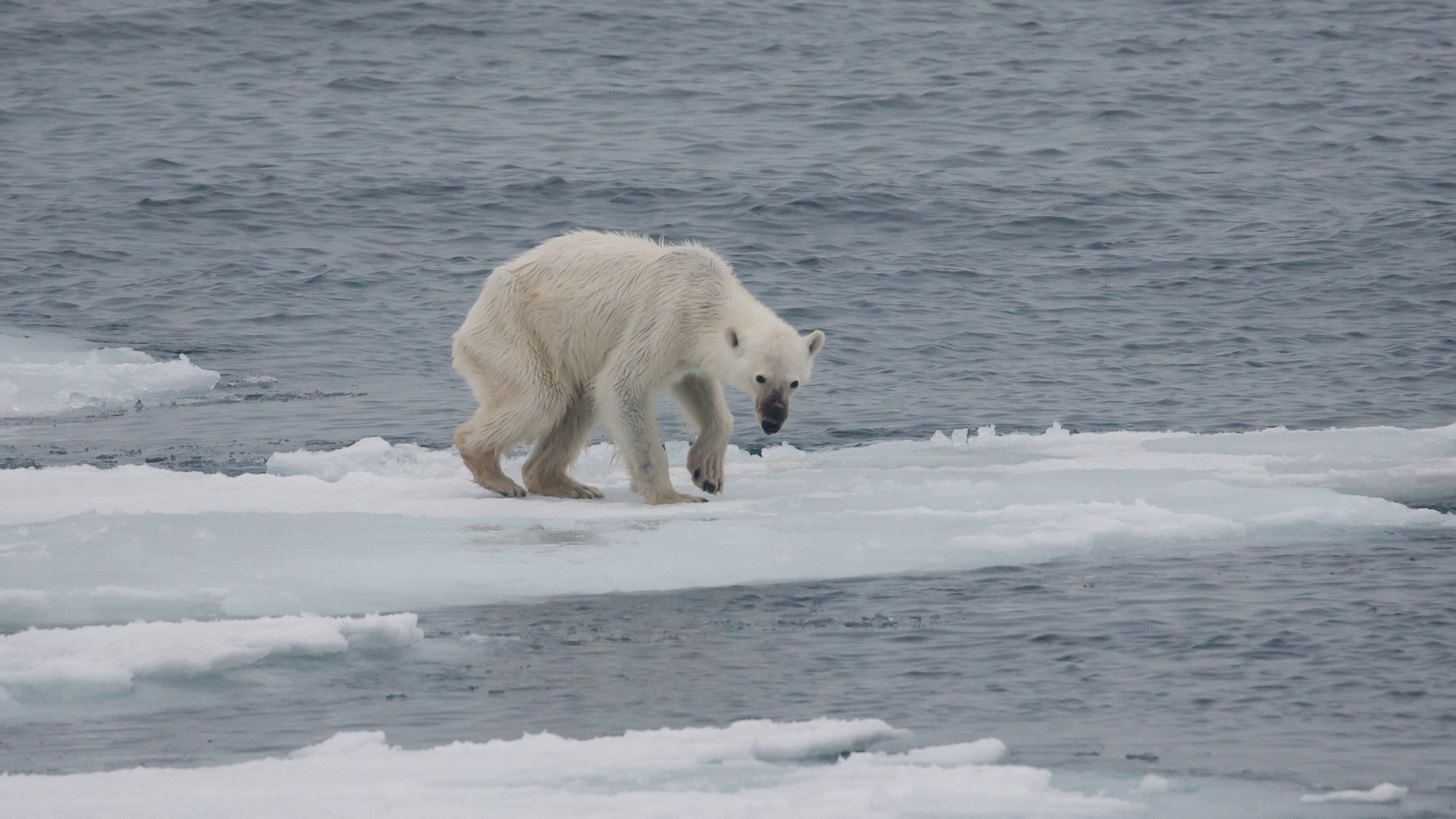
By Vanessa True
Polar bears are dwindling at a faster rate than the world thought. Imagine a world where children would simply learn about polar bears as being a part of our history in the same category as dinosaurs and other extinct animals. Without drastic change soon, polar bears will become a distant memory in the world.
As the ice melts away from the feet these innocent animals, they are being pushed into the water in the search for food. Studies by United States Geological Survey suggest that polar bears have developed an energy imbalance due to the lack of seals at their disposal causing these large animals to swim greater distances to find their food. This is happening because the land that seals and polar bears utilize is decreasing, making the hunt for seals much harder to reach by the polar bears.
CNN published a scientific study from the journal Science which “was conducted by researchers who fixed collars on nine bears and recorded their activity levels for up to 11 days. They found that the Arctic creatures were suffering an extreme shortage of food.”
To put it all into perspective polar bears are losing the weight that they should be gaining at a weekly pace. The strain that is being placed physically on these animals is heartbreaking; there is nothing sadder than a once mighty creature becoming skin and bones.
In a GPS video study by Mehdi Bakhtiari and PBS, weight mass was recorded over a section of time. The results were sickening: “Of the 9 bears we studied, five lost mass over the eight to 11 days that we monitored them. Four of the bears lost almost 10 percent of their body mass – about 40 pounds (18 kilograms).”
According to the PBS study, one polar bear should consume one adult ringed seal every 10 days in order to maintain a healthy weight and calorie intake. At the rate the ice is melting it is causing greater distances for polar bears to travel to get to safe land, therefore burning their energy much faster.
So my question is what makes it okay for a polar bear to live in a dying environment? Is it because they live in the Arctic, far away from us, so it does not directly affect our human lives? These are the questions that baffle me. The extinction of these animals will be the outcome of our actions and how we choose to protect them.
The climate is changing rapidly due to industrial greenhouse gases that are being burned for the needs of our transportation and electricity use, as well as our industry, agriculture, and commercial use, all of which are simply excuses that we use to pollute the air.
EPA administrator, Scott Pruitt said that climate change is in no way an urgent issue.
“I think there’s assumptions made that because the climate is warming, that that necessarily is a bad thing. Do we really know what the ideal surface temperature should be in the year 2100? In the year 2018? I mean it’s fairly arrogant for us to think that we know exactly what it should be in 2100,” Pruitt said.
Pruitt is claiming that climate change cannot be an issue because we scientifically do not know the ideal climate for the upcoming years, therefore there is no issue. One question I would have for Pruitt is, is the health of the earth and the animals that call it home now, not matter currently? Because how we treat the earth now creates the pathway for the future.
If the world does not come together soon to create efficient and proactive ways of reducing and hopefully ending global warming, the world as we know it may never hold beautiful creatures like the polar bear ever again.